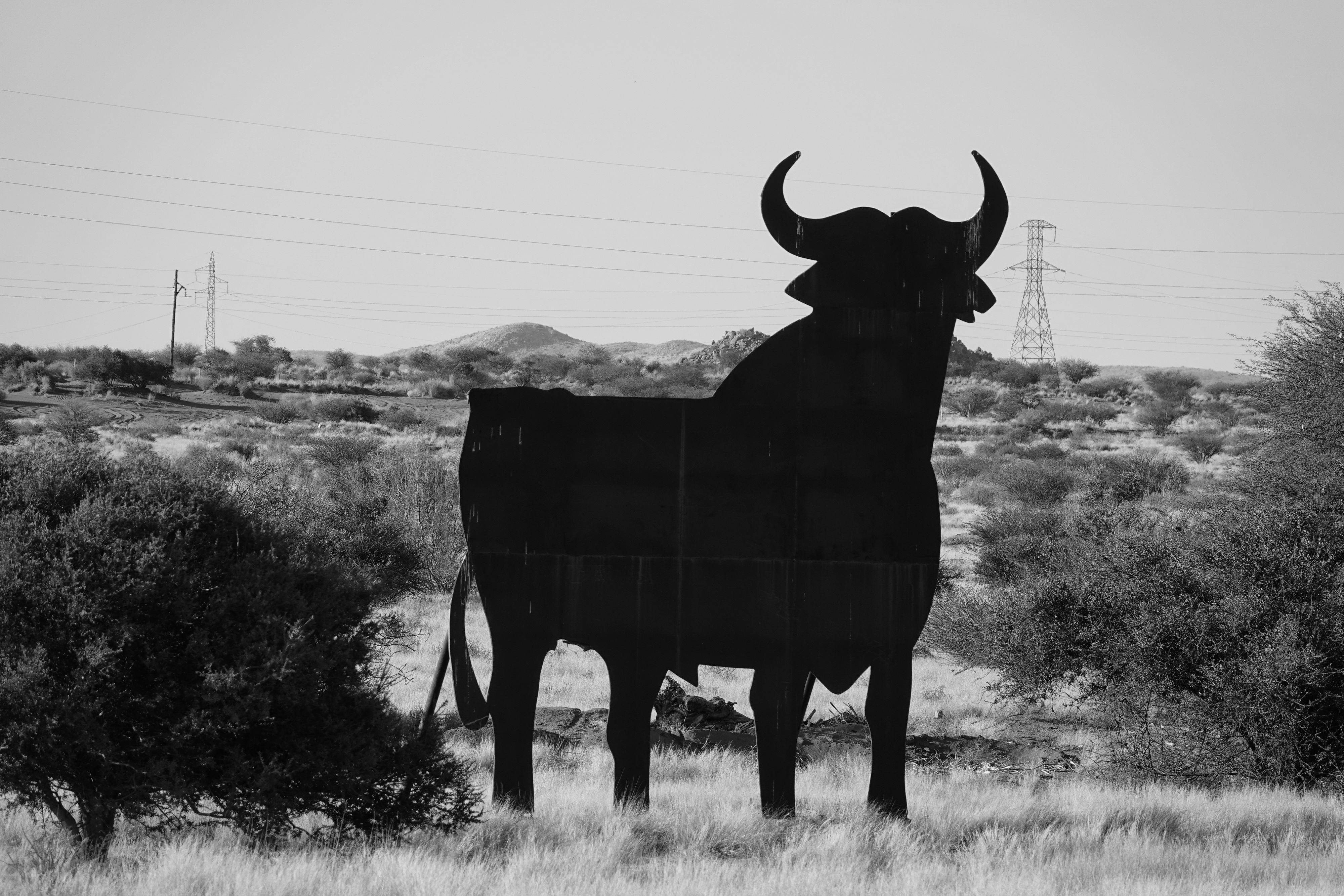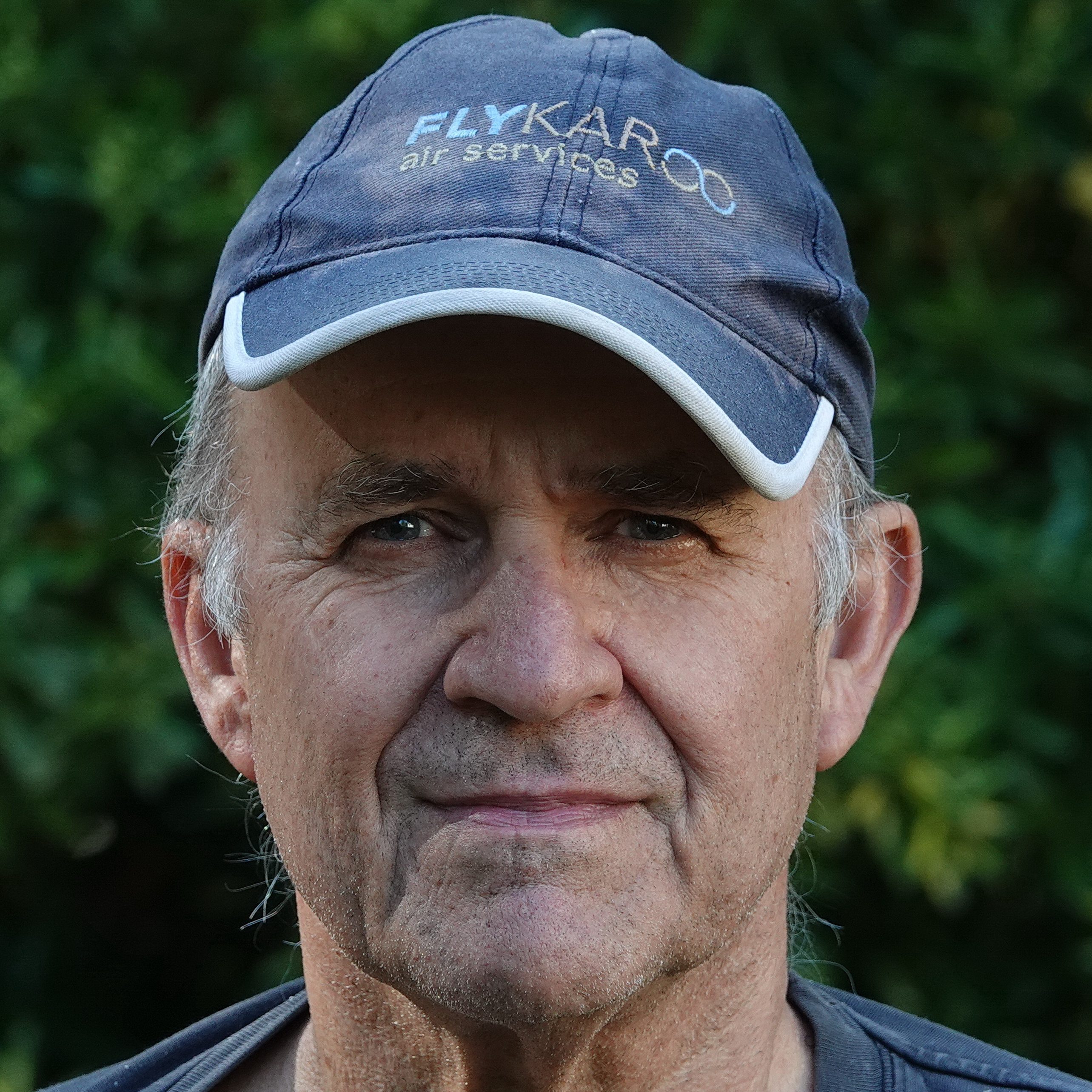If there’s one big town in the Kalahari-Karoo crossover zone that has been awakened by the Northern Cape mining boom, it’s Upington.
Settlements relying totally on extractive industries are eventually doomed to ghost town status, but Upington has her riverside agricultural giants and regional tourism is up like never before. So, long after the big lorries and the big spenders have left, Upington will still be there.
The retail centres might slump a little, but will still be the go-to outfitters for north-bound travellers in need of food and camping supplies for their annual Kalahari safari. And the riverside dwellers who surely own some of the finest real estate in the Northern Cape will still dip their toes in the passing floodwaters of the Orange and toast the evening skies with fine brandy.
Julienne du Toit and I check in at the Riverbank Lodge, unpack the bakkie and settle in for a sundowner whisky at water’s edge. Across the river is Die Eiland, which was at one stage the best resort around. Our Cradock-based friend Ludi Schröder remembers that his grandmother planted the palm trees that now line the avenues and resort grounds like watchful giants with crazy hair.
A new owner is trying to fix the place up, but after many years of neglect, it’s an awfully big job.
 Die Eiland resort on the south bank of the Orange River in Upington. (Image: Chris Marais)
Die Eiland resort on the south bank of the Orange River in Upington. (Image: Chris Marais)
Waylaid at the pump
We’ve just photographed the camel-cop statue outside the Upington police station when I notice the bakkie is a little low on fuel.
At the local Engen an old fellow approaches me, pointing at the “Karoo Stories” sign on the outside of my door.
“You want a Karoo story?” he exclaims. “Follow me. I live five minutes from here. I’ll tell you people a Karoo story!”
Soon enough, Julie and I are seated in a neat little lounge in the suburbs, listening to one Nico Steenkamp while his companion, Magdaleen Human, is in the kitchen organising the coffee.
“When I was a young man in the early 1990s, I had saved R1,200. My friend John Fichter had a 15,000-ha piece of ground in the Kalahari, but no money. So we pooled our assets and went farming Karakul sheep together.
 Magdaleen Human and her partner Nico Steenkamp, who was once a hardy karakul farmer. (Image: Chris Marais)
Magdaleen Human and her partner Nico Steenkamp, who was once a hardy karakul farmer. (Image: Chris Marais)
 The hard yards: Nico’s collage of Kalahari karakul farming memories. (Image: Chris Marais)
The hard yards: Nico’s collage of Kalahari karakul farming memories. (Image: Chris Marais)
“First we built a little shack out of wooden planks, eight feet by eight feet, to sleep in. All it could take was two very narrow beds. Then we built a room right next door where we worked the pelts. See (pointing to a collage of old photographs displayed on the wall), that’s my old Chev bakkie. It was the era of the Primus stove that ran on paraffin and was crucial for cooking. The Primus and our old coffee grinder – that was our kitchen.”
What follows is an interesting ramble about Karakul farming on the deep Kalahari sand, “where sheep never get fat”. I asked him what happened to the Karakul lamb carcasses once their day-old pelts had been removed.
“They were fed to the chickens,” he says. “And they got very fat.”
 A statue dedicated to the camel-mounted constabulary of the Kalahari. (Image: Chris Marais)
A statue dedicated to the camel-mounted constabulary of the Kalahari. (Image: Chris Marais)
 Classic old bakkies and Kalahari camel riders on a long-ago shopping expedition to Upington. (Photo: Courtesy of Stolper & Sons Archives)
Classic old bakkies and Kalahari camel riders on a long-ago shopping expedition to Upington. (Photo: Courtesy of Stolper & Sons Archives)
Art Deco summer furnace
Upington back in February of 1982 was a hellish hotbox.
Our hotel was still stuck in the early Sixties: wine-coloured drapes in the vast dining area permanently closed against the midsummer Kalahari outside. We never seemed to find shaded parking for our little red hire car, so it also offered its unwelcome services as a mini-sauna.
The courtroom had a dodgy air conditioner that seemed to grunt and stutter nearly as loudly as the witnesses on the stand. Even the river outside looked like it had simply fallen asleep.
Six years later, the Orange River would come roaring down, brown and angry, through Upington and beyond, claiming more than 20 lives and causing billions of rands’ damage to agriculture.
“The river takes its Christmas box early,” the locals say.
 Rush hour in early days Upington. (Image courtesy Stolper and Sons Archives)
Rush hour in early days Upington. (Image courtesy Stolper and Sons Archives)
 The first train to cross the new bridge at Upington in 1935. (Image Courtesy Stolper & Sons Archives)
The first train to cross the new bridge at Upington in 1935. (Image Courtesy Stolper & Sons Archives)
 After the first bridge crossing, the train arrives at Upington Station. (Image Courtesy Stolper & Sons Archives)
After the first bridge crossing, the train arrives at Upington Station. (Image Courtesy Stolper & Sons Archives)
The town itself was retro-alien to us. The people on the street spoke Afrikaans with a Namaqualand twang and a turn of phrase at once quaint and musical. The buildings were Platteland Art Deco and the traffic was bakkies, bakkies and a couple dozen more bakkies. Upington and its ways had photographer Noel Watson and I totally dazed and confused, except for the friendly old camera shop on Schröder Street, where we used to buy extra rolls of film.
The camera shop
Let’s fly back in time to 1948: World War 2 has been over for three years but, ironically, the victorious Allies are going through a terrible depression while the defeated nations (Germany and Japan) are being rebuilt at an incredible rate.
Dutch photographer Frits Stolper arrives in Upington, decides he likes the place and its people, and sets up his business with one Box Brownie camera and one roll of Kodak film.
We’re talking to Freddie, the grandson of Frits, at the counter of the very camera shop where Noel and I used to buy film more than 40 years ago.
“Oupa Frits needed premises, which were in short supply,” he says. “He came to Oom Max Kurland, a Jewish property owner, asking for studio space.”
 A camera shop dynasty: from left, Freddie Stolper, his mother Tannie Jane and his brother Charles. (Image Chris Marais)
A camera shop dynasty: from left, Freddie Stolper, his mother Tannie Jane and his brother Charles. (Image Chris Marais)
To the outsider, it would seem Frits would have no chance. He was poor and scruffy-looking. But Kurland knew something no other Upington Gentiles were aware of: during the war, Frits had smuggled Jewish refugees out of Holland. Like the more famous Oskar Schindler, he had risked his own life to sneak Jewish families out from under Nazi noses. And these humane deeds are never forgotten.
So Kurland let Stolper have a modest studio behind the main street café, and when Frits asked about the rent, Max replied:
“Nothing right now. First, you get your wife and children over here, then you settle your business, then we talk.” Frits had the place rent-free for five years.
Thus began a photographic dynasty as successive Stolpers recorded the growth of Upington. It was also the start of a generations-long friendship between the Stolpers and the Kurlands. Today, Stolper & Son, the oldest shop in Upington, has moved from photographic work to printing and framing. I ask Freddie why.
“That’s because of cell phones. Everyone’s a photographer these days.”
And then Freddie Stolper offers us the use of his family collection of historic Upington photographs (including ones from the pre-Stolper days) free and for mahala. It’s that old Karoo-Kalahari spirit of hospitality all over again… DM

This is a short chapter excerpt from Karoo Roads IV – In Faraway Places (360 pages, black and white photography, R350 including taxes and courier in South Africa) available from September 2024. Anyone interested in pre-ordering a first edition, author-signed copy should please contact Julie at julie@karoospace.co.za for more details.
The Karoo Quartet (Karoo Roads 1 – 4) consists of more than 60 Karoo stories and hundreds of black and white photographs. Priced at R960 (including taxes and courier in South Africa), this Heritage Collection can also be ordered from julie@karoospace.co.za




 A camera shop dynasty: from left, Freddie Stolper, his mother Tannie Jane and his brother Charles. (Image Chris Marais)
A camera shop dynasty: from left, Freddie Stolper, his mother Tannie Jane and his brother Charles. (Image Chris Marais) 